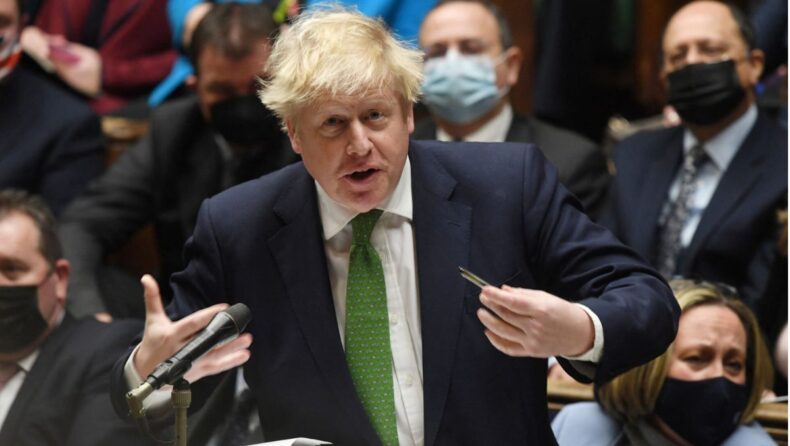The British prime minister Johnson faced a confidence vote on Monday after a growing number of members of his own Conservative Party questioned his authority in light of the “partygate” scandal.
Johnson, who won the 2019 election with a landslide, has been under increasing pressure after his staff held alcohol-fuelled parties during COVID-19 in his Downing Street office and residence. He was met with jeers and boos at events to celebrate Queen Elizabeth’s Platinum Jubilee in recent days.
“You have presided over a culture of casual law-breaking at 10 Downing Street in relation to COVID,” he said, adding the government had “a large majority, but no long-term plan”. Norman is among many Conservative lawmakers who say Johnson has lost his authority to govern Britain, which faces rising prices, the risk of recession, and strike-inflicted travel chaos in London.
Johnson’s anti-corruption chief John Penrose resigned. “I think it’s over. It feels now like a question of when not if,” he told Sky News.

A majority of the 359 Conservative lawmakers – at least 180 – would need to vote against Johnson for him to be removed. However, some Conservatives believe this would be difficult given the lack of an obvious successor to Johnson.
If passed, there would be a leadership contest to decide his replacement, which could take several weeks. Johnson expressed concern about the lack of an “orchestrated campaign” against the prime minister, which suggests a more spontaneous revolt than those that have deposed leaders in the past.
Johnson rose to power at Westminster as the face of the Brexit campaign in a 2016 referendum and adopted a hardline position once in power. Jacob Rees-Mogg, the minister for Brexit opportunities, told Sky News that the completion of Britain’s departure from the European Union would be “significantly at risk” without his drive and energy.

Johnson has clashed with Brussels over Northern Ireland, potentially causing more barriers to British trade and alarming leaders in Ireland, Europe and the United States about the province’s 1998 peace agreement.
OUTCOME UNCERTAIN
Ministers have also been at pains to highlight what they believe were the high points of Johnson’s administration – pointing out that the rollout of COVID-19 vaccinations and Britain’s response to Russia’s invasion of Ukraine prove the prime minister was capable of making “big decisions”.
“I support him today and will continue to support him as we grow the economy, deal with the cost of living, and clear backlogs in COVID,” finance minister Rishi Sunak said on Twitter.
https://twitter.com/RishiSunak/status/1533721564390338560?ref_src=twsrc%5Etfw
Johnson also made the same point in letters to Conservative lawmakers, asking them to support him.
Johnson, or his possible successor, faces a raft of problems. Britain has faced its biggest cost-of-living squeeze since records began in the 1950s, as food and fuel prices have soared while wages have stagnated.
Some Conservatives see Johnson as having squandered a large majority by failing to set the agenda after scandals hamstrung him.
However, others expect him to survive the vote, and he could reset his administration despite being wounded. Two out of five Conservative members, according to YouGov, believe lawmakers should remove Johnson.
Mel Chetwood, 61, said the sight of Johnson being booed by a royal-supporting audience was crucial. “That felt like a turning point to me.”
In a country without a formal constitution, the United Kingdom has seen many prime ministers lose office due to a lack of support from political colleagues – most notably Margaret Thatcher in 1990 and Tony Blair in 2007.

Premierships in the United Kingdom are just as likely to end between general elections as during general elections. Even if there are no explicit and formal arrangements, the constitution still reflects political failures.
This week, an attempt is being made in the United Kingdom to oust a prime minister who has lost significant political support using the unwritten constitution.
Ejection may occur sooner or later. Johnson is unlikely (though not impossible) to regain his former political dominance. Johnson may try to game the constitution to remain in power, but it is more likely that someone will find a way to get rid of him.













